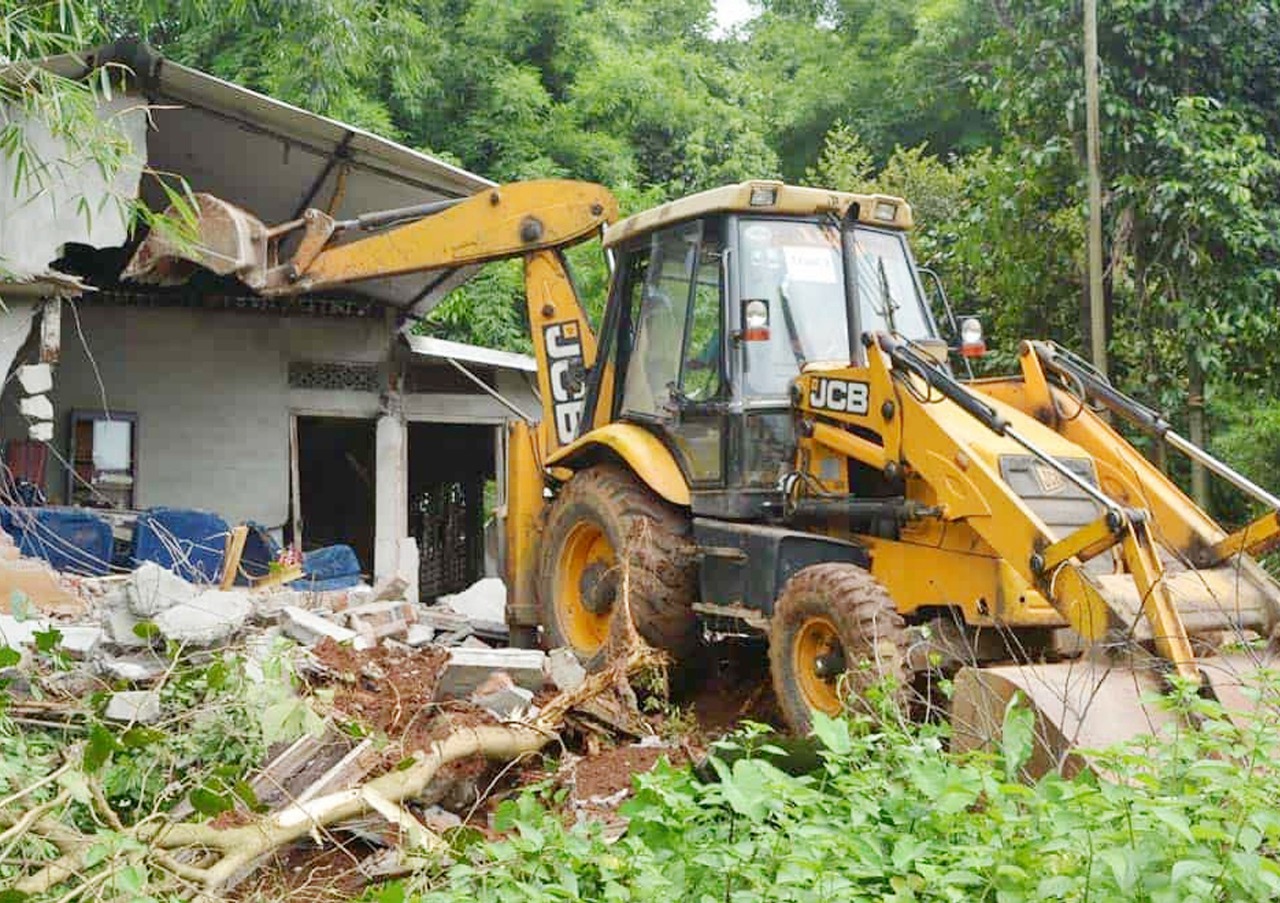
By Sulagna Halder
Guwahati:
The Assam government has intensified eviction efforts to reclaim vast tracts of illegally occupied forest land, officials confirmed on 12 July, marking a new phase of environmental and legal enforcement across the state.
According to data submitted to the National Green Tribunal (NGT) in March, Assam has over 3.62 million hectares (3,620.9 km²) of forest land under encroachment, making it the state with the second highest figure in India, surpassed only by Madhya Pradesh. The NGT has previously directed the state to clear 4,240 ha in Kamrup (M) alone by 31 December 2026.
The eviction campaign took a significant turn in Goalpara district’s Paikan Reserve Forest, where on 12 July, authorities cleared 140 hectares of encroached land which was previously housing 1,080 families. It demolished nearly 2,500 structures, including homes and eight mosques. Officials added that this area, long suspected of contributing to human elephant conflict, was heavily settled over the past 25 years by communities from riverine Assam.
Goalpara’s Divisional Forest Officer, Tejas Mariswamy, highlighted the eviction’s ecological purpose: “This is part of a high priority mission to reclaim degraded forest land and reduce frequent human-wildlife confrontations”. He added that advanced fieldwork, including boundary surveys and voluntary relocation notices, preceded the drive. Nearly 95 percent of settlers left before demolition, although brick and pucca houses necessitated forced removal.
Chief Minister Himanta Biswa Sarma, who has overseen the campaigns since the BJP’s 2016 victory, confirmed that over 25,000 acres (about 10,000 hectares) of encroached land have been cleared through similar operations. He assured rehabilitation would be available only to landless Indian citizens, asserting: “Every inch of encroached land will be reclaimed”.
According to Forest Minister Chandra Mohan Patowary, state reserves still have 335,322 hectares under encroachment. Of these, 250,350 hectares are intrusions by locals, 83,800 hectares by neighbouring states, and over 1,100 hectares by tea estates. He noted that eviction drives from 2021 to 2024 have freed approximately 10,900 ha.
Judicial and regulatory interventions have accelerated the process. The Gauhati High Court and NGT have issued repeated directives, including an order requiring clearance of encroached land in Kamrup, prompting the state’s aggressive action.
While conservationists and officials applaud these actions for restoring biodiversity and mitigating human-elephant clashes, critics highlight their human cost, especially on vulnerable minority communities. During the Goalpara eviction, All Assam Minorities Students’ Union (AAMSU) and opposition leaders disrupted operations, and reports noted demolitions even of mosques and community infrastructure.
Concerns also centre on rehabilitation, which critics say lacks adequate planning. Despite earlier schemes that included schools and water pipelines, many evictees received no relocation support. Reports of camps with poor living conditions further fuelled objections filed in higher courts.
From the government’s perspective, reclaiming forest land is vital for ecological balance, enhancing wildlife corridors, and enabling public projects such as power plants. The cleared land is expected to feed into efforts for forest restoration and infrastructure development, including a proposed 3,400 MW thermal plant in Goalpara.
As these eviction drives expand, with further operations scheduled in Dhubri and other districts, Assam stands at a moment of reckoning. State authorities warn they will not halt until encroached forest and wetland territories are entirely restored. Yet ensuring justice, rehabilitation and sustainability for affected communities will determine the fairness and credibility of this enforcement.
The coming months will test Assam’s ability to balance ecological recovery with human dignity which is a precedent that other Indian states and environmental guardians are watching closely.